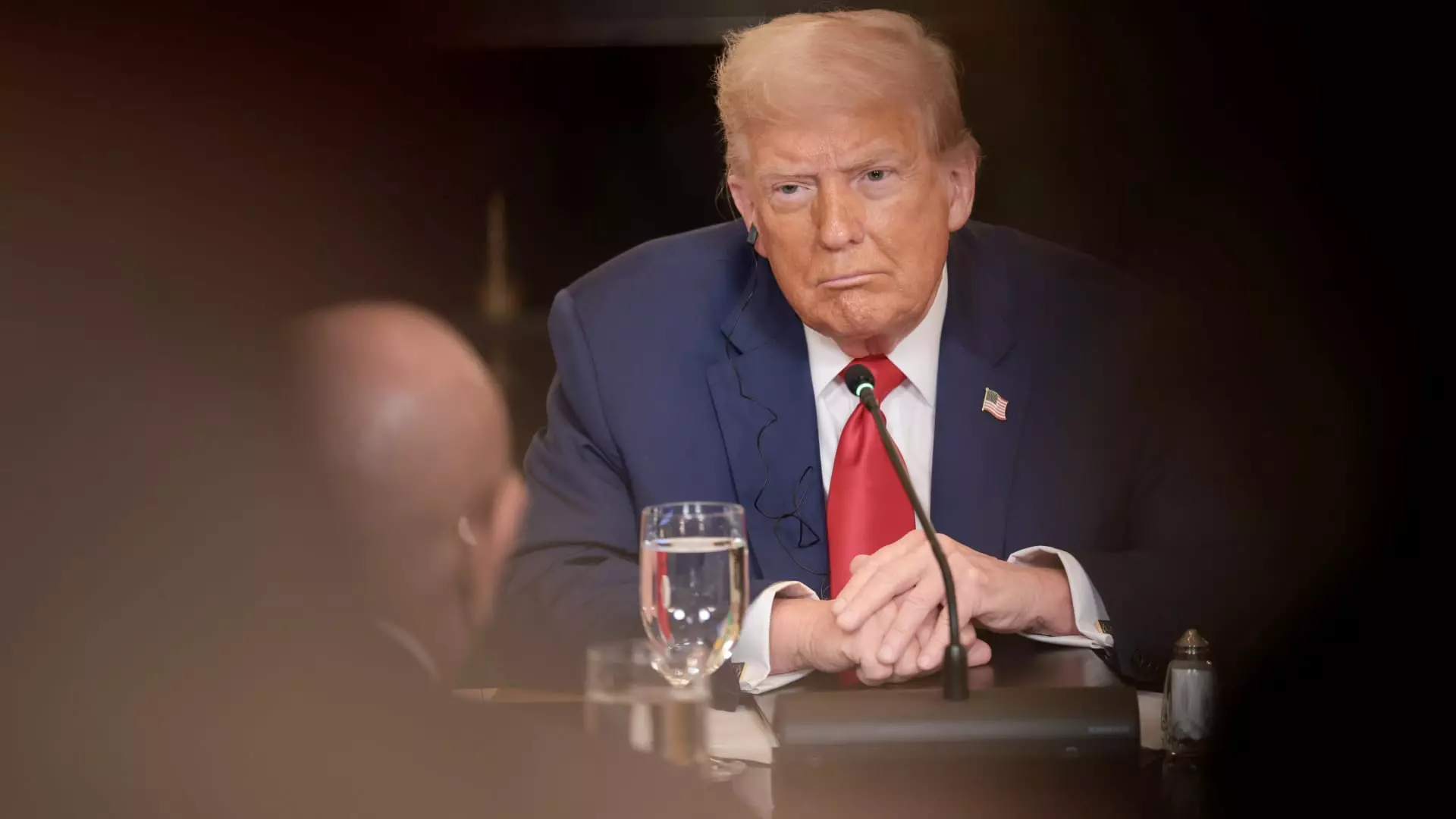The recent push by President Donald Trump to unseal the grand jury testimony related to Jeffrey Epstein has ignited a fierce debate that goes far beyond mere legal protocols. At its core, this controversy exposes the fragility of public trust in institutions, especially when opaque secrets hide the involvement of the powerful. Trump’s bold move to request the unsealing demonstrates a willingness to challenge the status quo—yet it also highlights how deeply political interests distort the pursuit of truth.
The decision to press for transparency appears, on the surface, as a step towards justice. However, the tangled web of vested interests, legal barriers, and partisan loyalties suggests that the real motivations are far more complex. For some, releasing the testimony symbolizes a chance to pierce the curtain of privilege that shields the elite from accountability. For others, particularly within the entrenched bureaucracies and judicial system, such transparency threatens the delicate balance of power that allows corruption to fester out of sight.
This incident underscores the fundamental struggle between the public’s right to know and the enduring urge of institutions to keep certain truths under wraps. A transparent government that reveals stories of influence, abuse, and cover-up bolsters democratic legitimacy. Conversely, secrecy enables the concealment of systemic failures and personal misconduct. The Epstein saga serves as an emblem of this tension, revealing how political factions manipulate the narrative to serve their own ends.
Conspiracy or Cover-up? The Distraction of Disinformation
Public interest in Epstein’s case has morphed into a battleground for conspiracy theories and political conspiracy-mongering. Supporters on Trump’s MAGA base echo claims of a “scam” orchestrated by Democrats to vilify the former president and his allies. Meanwhile, the discovery of a personal letter from Trump to Epstein, written during Epstein’s controversial 50th birthday, fuels suspicions of cover-ups and complicity.
However, the rush to implicate broader schemes often overshadows the critical need for factual clarity. The release of grand jury transcripts, typically shrouded in secrecy, risks offering only partial truths—especially when they are selectively released to confirm ideological narratives. The FBI’s memo debunking claims of a “client list” or evidence of blackmail rooted in Epstein’s network further complicates the story, highlighting how misinformation can easily distort reality.
This muddled landscape demonstrates how easily the truth becomes collateral damage amidst political skirmishes. It raises vital questions about the motives behind demanding transparency: Is it genuinely about justice, or is it a strategic move to tarnish rivals and secure political advantage? The weaponization of Epstein’s notoriety reveals a broader distrust in the institutions supposed to deliver justice, reinforcing the need for a cautious approach that respects the rule of law rather than sensationalist theatrics.
The Power Dynamics Behind the Curtain
Epstein’s case symbolizes more than just individual misconduct; it illuminates the nexus of power, privilege, and secrecy that sustains the social order. His connections to influential figures, including presidents, royalty, and wealthy elites, suggest a pattern of systemic protection for those with resources to buy influence or silence. Whether or not these individuals are ever publicly implicated, the perception that such a network exists fuels public cynicism and conspiracy theories.
Trump’s past association with Epstein adds another layer to the narrative—one that he now seeks to distance himself from, yet cannot entirely escape. His call to unseal documents and call out what he describes as “the scam” underscores the fragile political calculus: revealing inconvenient truths risks alienating core supporters and exposing vulnerabilities. Conversely, concealing such information perpetuates a cycle of distrust that erodes both faith in government and the social fabric itself.
The fact that some Republicans, including Pence and congressional allies, push for transparency, signals a nuanced realization that accountability shouldn’t be a partisan tool. It acknowledges that genuine democracy hinges on the principle that nobody should be above the law—regardless of political affiliation. Yet, the resistance from judicial and bureaucratic entities reveals how entrenched the desire to suppress uncomfortable truths truly is.
Rethinking Justice in the Age of Elite Impunity
What this contentious fight over Epstein’s files ultimately reveals is a need to critically reassess our understanding of justice and accountability. The machinery of law is designed to protect innocent citizens, and grand jury secrecy exists to prevent undue influence and preserve fairness. However, when those protections are wielded to shield the powerful, they undermine the very foundation of justice.
The persistent demand for transparency should be rooted in the belief that justice must not be hindered by political agendas. It is vital to question whether the current legal and institutional structures are capable of exerting true oversight over the influential, or if they are complicit in enabling a culture of silence. If the unsealing of grand jury testimony becomes a symbol of genuine accountability, it might push institutions to reconsider how they balance secrecy with the public’s right to know.
Meanwhile, the Epstein case highlights the dangerous precedent set when powerful figures manipulate narratives to serve their interests. When the truth is selectively released or obscured, public suspicion festers and conspiracy theories flourish, ultimately weakening societal cohesion. Until we confront these underlying injustices with transparency and integrity, the cycle of distrust and cover-up will continue to threaten the very foundations of democratic governance.
In the end, this confrontation over Epstein’s hidden truths isn’t merely about one individual or one scandal; it’s a reflection of our collective struggle for a fair, honest society where justice isn’t a privilege of the powerful but a shield for all.

Leave a Reply